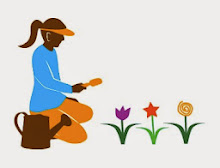When my son was about eight years old, he came to me and exclaimed, "I have the first sign of puberty!" In my best attempt to not sound incredulous, I asked, "How do you know?" He replied, "I pulled it and it didn't come off!" A million things raced through my mind, including how to appear calm while screaming inside my head thinking about all the things I may need to talk about that I was simply not ready for. Luckily, upon inspection, we both determined that he was not, in fact, starting puberty. Knowing that scenario was just the beginning of many, I steeled my nerves and prepared for the inevitable.
Talking to our kids about puberty and sexuality is difficult for most of us. Like paying taxes, its something we know we have to do, but dread, fearing that one mistake may cause years of deep regret. Steady those knees, Mom and Dad! You can do this! You are capable and, more importantly, you are best suited to usher your children into adulthood with a healthy understanding and appreciation of their bodies. Below are a few tips to help you on your journey.
1. Stay Calm. Sometimes our non-verbal messages drown out our verbal ones. Be relaxed and casual when speaking to your child. It's important that she not get the message that discussing her body is embarrassing or wrong. Use humor to keep the mood light, but be careful not to make the child feel like you are making fun of her.
2. Answer the actual question asked. Listen carefully to your child's question. For younger children, try to give general, uncomplicated answers. Sometimes when a child asks "Where do babies come from?", they just want to know which parent gives birth -- not every detail. How much we tell them will depend on the question and the child's level of understanding and development. These questions will return as they grow older; likewise, the level of detail in your response will grow.
3. Give the facts. Teach your child the correct words for body parts and functions from the very beginning. Even if your family prefers to use "pet" phrases like "private parts" its important that children can accurately name their genitals just as easily and comfortably as they can the rest of their body parts.
4. Make use of available resources! Prepare your child (and yourself) for the changes to come by reading age-appropriate books and consulting websites. Enlist the help of your child's pediatrician who will happily provide guidance and answer questions.
Helping children develop positive attitudes regarding their bodies and sexuality requires that we begin early, creating an atmosphere that is open and promotes ongoing conversation. When your child comes to you, reassure him with responses that validate his curiosity, inform him, and encourage him to continue to come to you for answers to other "great mysteries" in the future.
--Sheila--
© 2010 Gardener Parenting Consultants, LLC
Check out this month's recommended books!
Subscribe to:
Post Comments (Atom)


No comments:
Post a Comment